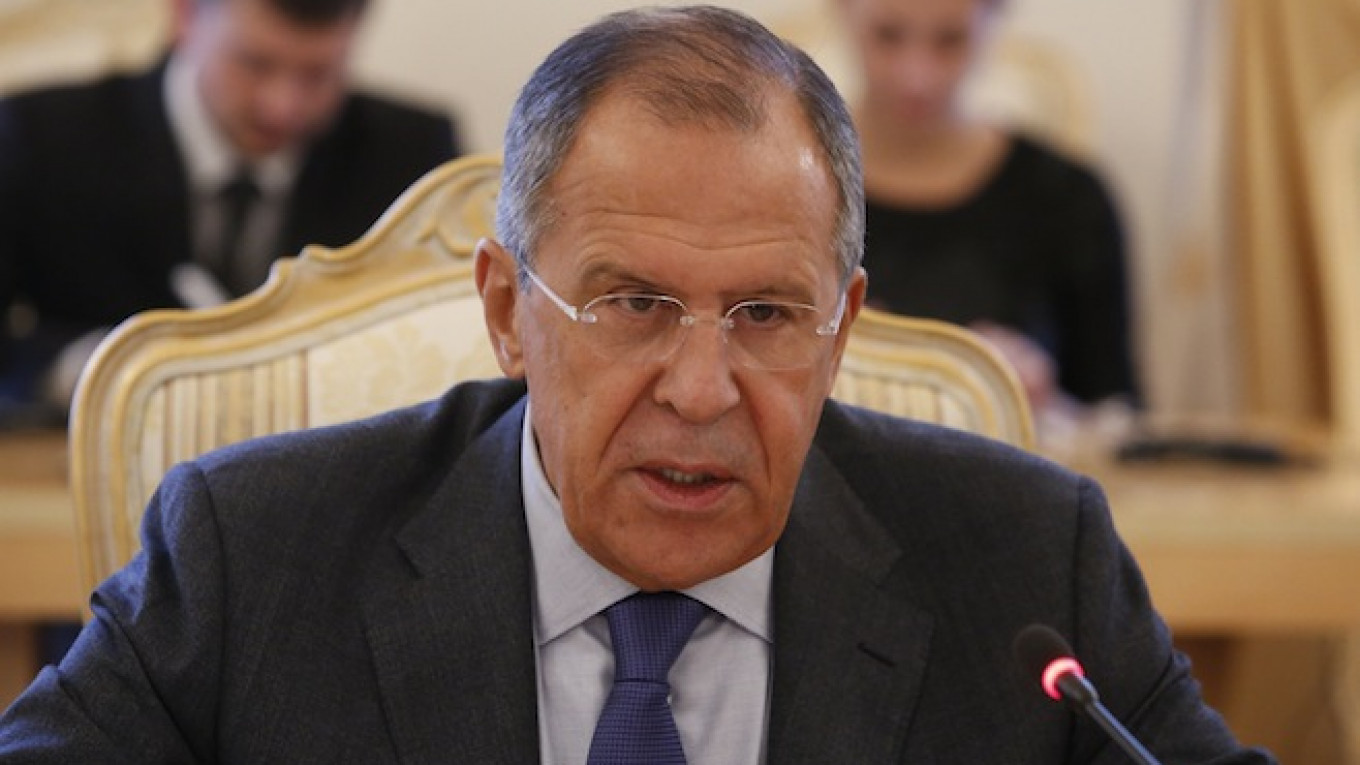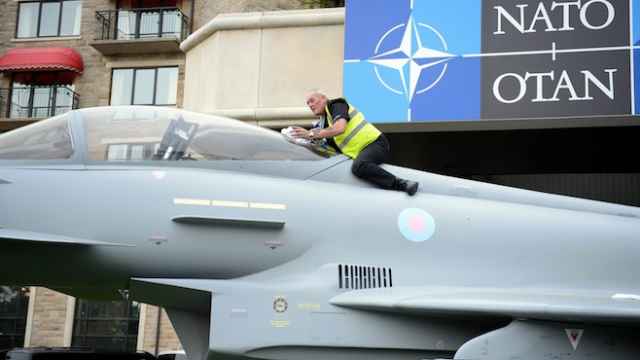Russia's foreign minister warned NATO not to offer Ukraine membership of the alliance as it gathered for a summit on Thursday and told the United States not to try to impose its will on the former Soviet republic.
Sergei Lavrov also urged Kiev and pro-Russian rebels fighting Ukrainian forces in eastern Ukraine to back peace moves outlined by President Vladimir Putin and avert what he said could be a large-scale crisis in the heart of Europe.
Putin unveiled the seven-point plan on Wednesday, the eve of a NATO summit at which the crisis in Ukraine will be discussed.
"It is precisely at such a moment when a chance has emerged to start solving specific problems between Kiev and the militias that some sections of the Kiev authorities make demands for Ukraine to drop its non-aligned status and start joining NATO," Lavrov said at talks with the Organization for Security and Cooperation in Europe, a rights and security group.
"It's a blatant attempt to derail all efforts aimed at initiating a dialogue on ensuring national reconciliation."
Moscow has long said it will regard NATO membership for Ukraine as a national security threat.
Underlining Moscow's concerns about U.S. influence on Kiev, Lavrov said: "Some of our Western partners, including unfortunately the most influential players — the United States — want victory for NATO and a situation where America dictates its will to everyone."
"This concept of exclusivity, which President (Barack) Obama has repeatedly declared, can lead to no good and has so far led to no good," he said.
Lavrov promised Russia would take "practical steps" to deescalate the crisis in Ukraine and urged Kiev and rebel leaders to accept Putin's proposals for a сеаsе-fire.
A Message from The Moscow Times:
Dear readers,
We are facing unprecedented challenges. Russia's Prosecutor General's Office has designated The Moscow Times as an "undesirable" organization, criminalizing our work and putting our staff at risk of prosecution. This follows our earlier unjust labeling as a "foreign agent."
These actions are direct attempts to silence independent journalism in Russia. The authorities claim our work "discredits the decisions of the Russian leadership." We see things differently: we strive to provide accurate, unbiased reporting on Russia.
We, the journalists of The Moscow Times, refuse to be silenced. But to continue our work, we need your help.
Your support, no matter how small, makes a world of difference. If you can, please support us monthly starting from just $2. It's quick to set up, and every contribution makes a significant impact.
By supporting The Moscow Times, you're defending open, independent journalism in the face of repression. Thank you for standing with us.
Remind me later.






